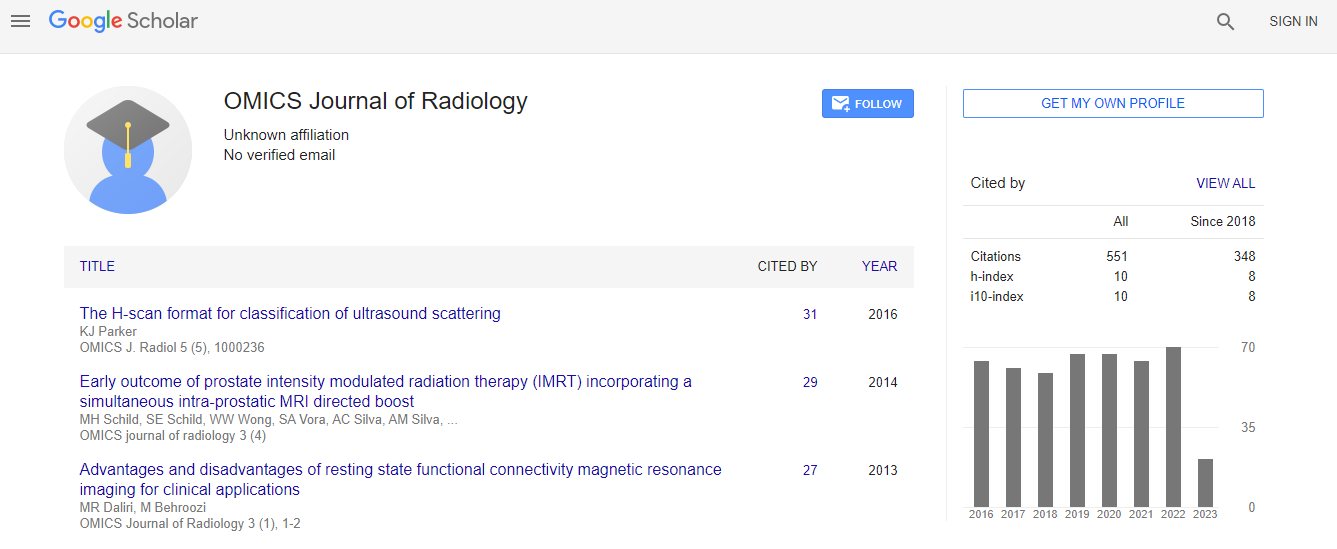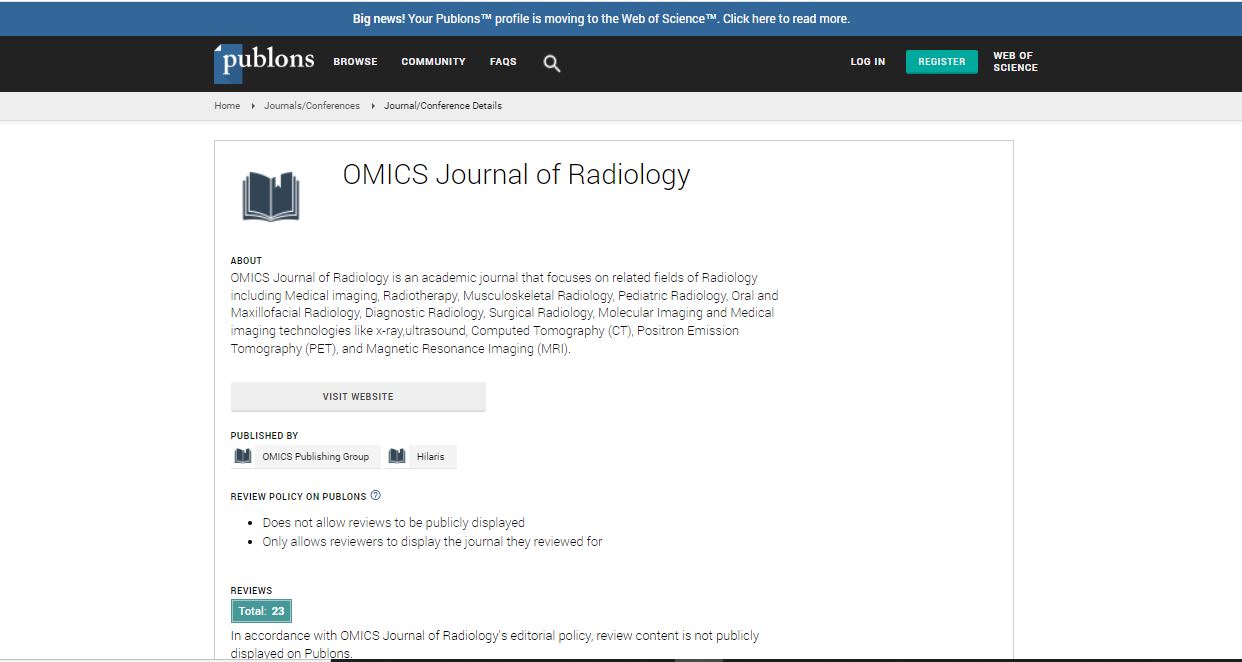Our Group organises 3000+ Global Conferenceseries Events every year across USA, Europe & Asia with support from 1000 more scientific Societies and Publishes 700+ Open Access Journals which contains over 50000 eminent personalities, reputed scientists as editorial board members.
Open Access Journals gaining more Readers and Citations
700 Journals and 15,000,000 Readers Each Journal is getting 25,000+ Readers
Google Scholar citation report
Citations : 551
Journal of Radiology received 551 citations as per Google Scholar report
Journal of Radiology peer review process verified at publons
Indexed In
- Index Copernicus
- Google Scholar
- Open J Gate
- Genamics JournalSeek
- ResearchBible
- Electronic Journals Library
- RefSeek
- Hamdard University
- EBSCO A-Z
- OCLC- WorldCat
- SWB online catalog
- Virtual Library of Biology (vifabio)
- Publons
- Geneva Foundation for Medical Education and Research
- ICMJE
Useful Links
Share This Page
Identifying and testing new quantitative image, an analysis based clinical markers to predict breast cancer risk and prognosis
International Conference on Medical Imaging & Diagnosis
Bin Zheng
University of Oklahoma, USA
ScientificTracks Abstracts: OMICS J Radiol
Abstract
Quantitative image feature analysis plays an important role in cancer screening, diagnosis, and prognosis assessment. In our laboratory, we focus on identifying and testing new quantitative image analysis based clinical markers to help more accurately predict cancer risk and prognosis. In this presentation, I will discuss our work and recent progress in assessing near-term breast cancer risk and breast tumor response to neoadjuvant chemotherapy. First, we applied image feature analysis method based on detection of bilateral mammographic density and tissue asymmetry to build a new machine learning model to predict risk of the individual women developing early breast cancer in the near-term (i.e., within the 2 years aft er a negative mammography screening). Second, we extracted kinetic image features from breast MR images to build another new model to predict the likelihood of complete response of breast tumors to neoadjuvant chemotherapy. To increase confi dence of clinians to consider and/or accept the prediction results of our new models, we also developed and implemented the graphic user interface (GUI) platforms for interactively applying our new image processing scheme and prediction models to process and analyze images. Our preliminary testing results using several image datasets demonstrated that applying the new quantitative image feature analysis based models could yield signifi cantly higher discriminatory power in predicting near-term breast cancer risk and tumor response to the chemotherapy. If it is successfully applied, the new image marker based prediction models has potential to help establish a new and more eff ective personalized breast cancer screening and/or treatment paradigms in the future.Biography
Bin Zheng has received his PhD from University of Delaware in 1993. After working in Department of Radiology, University of Pittsburgh for 20 years, he joined the Faculty in University of Oklahoma in 2013 as a Professor at School of Electrical and Computer Engineering and Oklahoma TSET cancer research scholar at Stephenson Cancer Center. Since 1998, he has served as Principal Investigator in fi ve R01 and one R21 grant awards from NCI, NIH, one DOD breast cancer project, and subcontract PI of two other NIH R01 grant awards. Currently, he is AIMBE Fellow and an Editor-in-Chief of Journal of X-ray Science and Technology.
Email :bin.zheng-1@ou.edu

 Spanish
Spanish  Chinese
Chinese  Russian
Russian  German
German  French
French  Japanese
Japanese  Portuguese
Portuguese  Hindi
Hindi 
